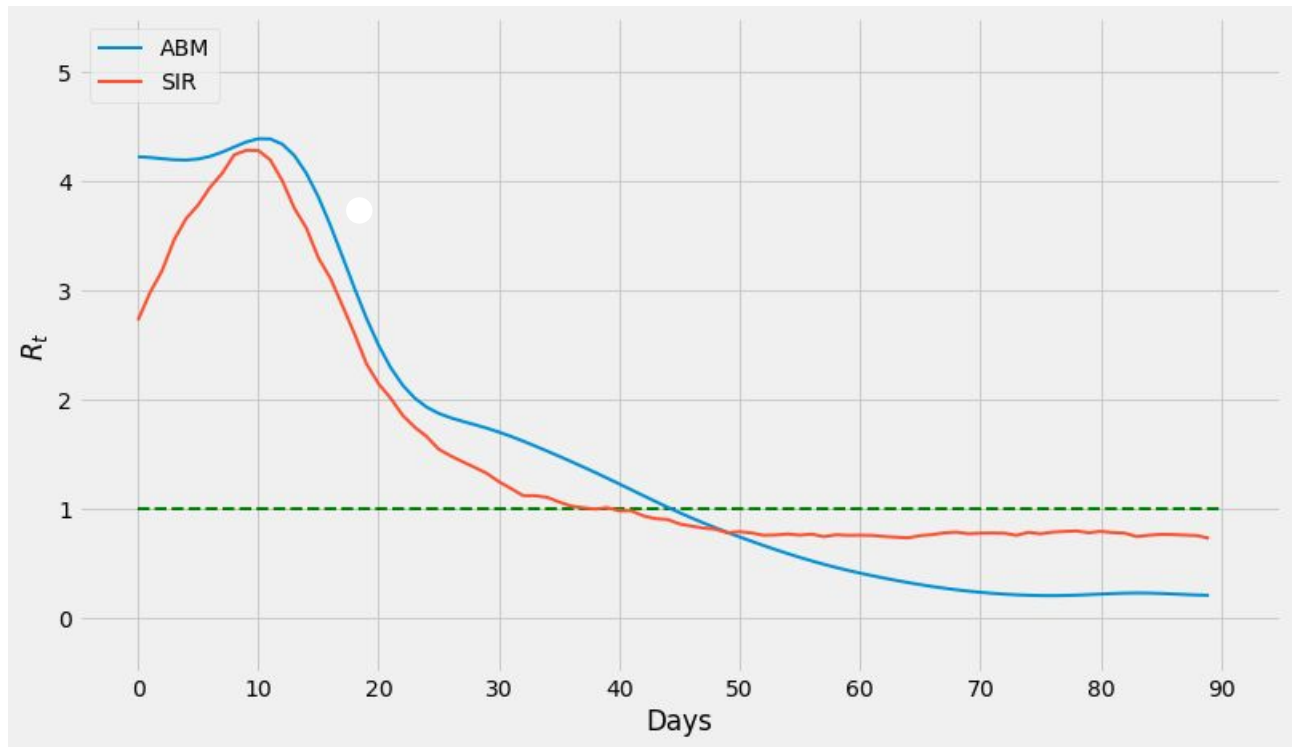An Agent-Based Modeling of COVID-19 - Validation, Analysis, and Recommendations
A novel agent based model was proposed to model the pandemic.
Project Duration: 2020-2021
Highlights
- We performed simulations of the pandemic using Agent-Based Modeling.
- My contribution involved calculating the effective reproduction number( \( R_t \) ) using SIR model.
Github Repository
Download Full Text
Abstract
The coronavirus disease 2019 (COVID-19) has resulted in an ongoing pandemic worldwide. Countries have adopted non-pharmaceutical interventions (NPI) to slow down the spread. This study proposes an agent-based model that simulates the spread of COVID-19 among the inhabitants of a city. The agent-based model can be accommodated for any location by integrating parameters specific to the city. The simulation gives the number of total COVID-19 cases. Considering each person as an agent susceptible to COVID-19, the model causes infected individuals to transmit the disease via various actions performed every hour. The model is validated by comparing the simulation to the real data of Ford County, KS, USA. Different interventions, including contact tracing, are applied on a scaled-down version of New York City, USA, and the parameters that lead to a controlled epidemic are determined. Our experiments suggest that contact tracing via smartphones with more than 60% of the population owning a smartphone combined with city-wide lockdown results in the effective reproduction number ( \( R_t \) ) to fall below 1 within 3 weeks of intervention. For 75% or more smartphone users, new infections are eliminated, and the spread is contained within 3 months of intervention. Contact tracing accompanied with early lockdown can suppress the epidemic growth of COVID-19 completely with sufficient smartphone owners. In places where it is difficult to ensure a high percentage of smartphone ownership, tracing only emergency service providers during a lockdown can go a long way to contain the spread.
References
2021
-
 An Agent-Based Modeling of COVID-19: Validation, Analysis, and RecommendationsCognitive Computation, Feb 2021
An Agent-Based Modeling of COVID-19: Validation, Analysis, and RecommendationsCognitive Computation, Feb 2021